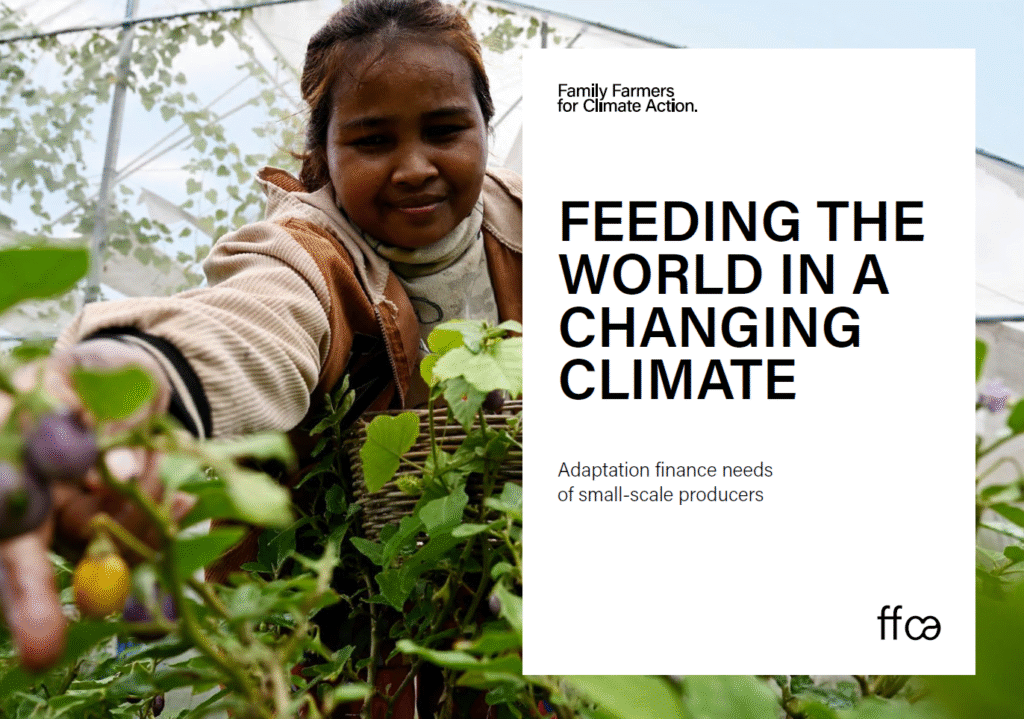A new global report, “Feeding the World in a Changing Climate”, has revealed that US$443 billion a year is needed to help small-scale family farmers adapt to the growing impacts of climate change. The analysis, conducted by Climate Focus for Family Farmers for Climate Action (FFCA), underscores that current finance flows to smallholders amount to just 0.36% of what is required.
Small-scale family farms produce half of the world’s food calories and support more than 2.5 billion livelihoods, yet they remain among the most vulnerable to droughts, floods, and rising temperatures. The report estimates that an annual investment of just US$953 per hectare could significantly strengthen farmers’ resilience through measures such as improved soil health, water-efficient irrigation, and access to climate information and insurance.
While the finance gap is enormous, the report notes that the cost of investing in smallholder adaptation is less than what governments currently spend on harmful agricultural subsidies—estimated at US$470 billion annually. Redirecting such subsidies and reforming global finance systems could provide the necessary resources to build more resilient and sustainable food systems.
The report also calls for the creation of a Farmers’ Resiliency and Empowerment Fund, led by farmer organisations, to ensure climate finance reaches those most affected on the ground. It further highlights the importance of including family farmers in decision-making processes at all levels—from National Adaptation Plans to international climate negotiations such as COP30, which will focus heavily on food and agriculture.
For the Pacific region, where smallholder farming represents 17.7% of GDP, the findings reinforce the urgent need for direct investment in locally driven adaptation solutions that strengthen food security and rural livelihoods.
“When small-scale farmers thrive, the world eats. Investing in their resilience is investing in our shared future,” the report concludes.

